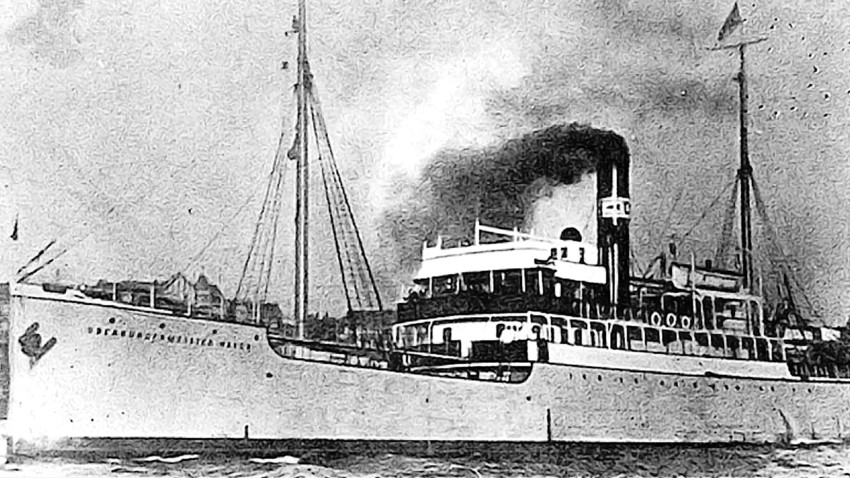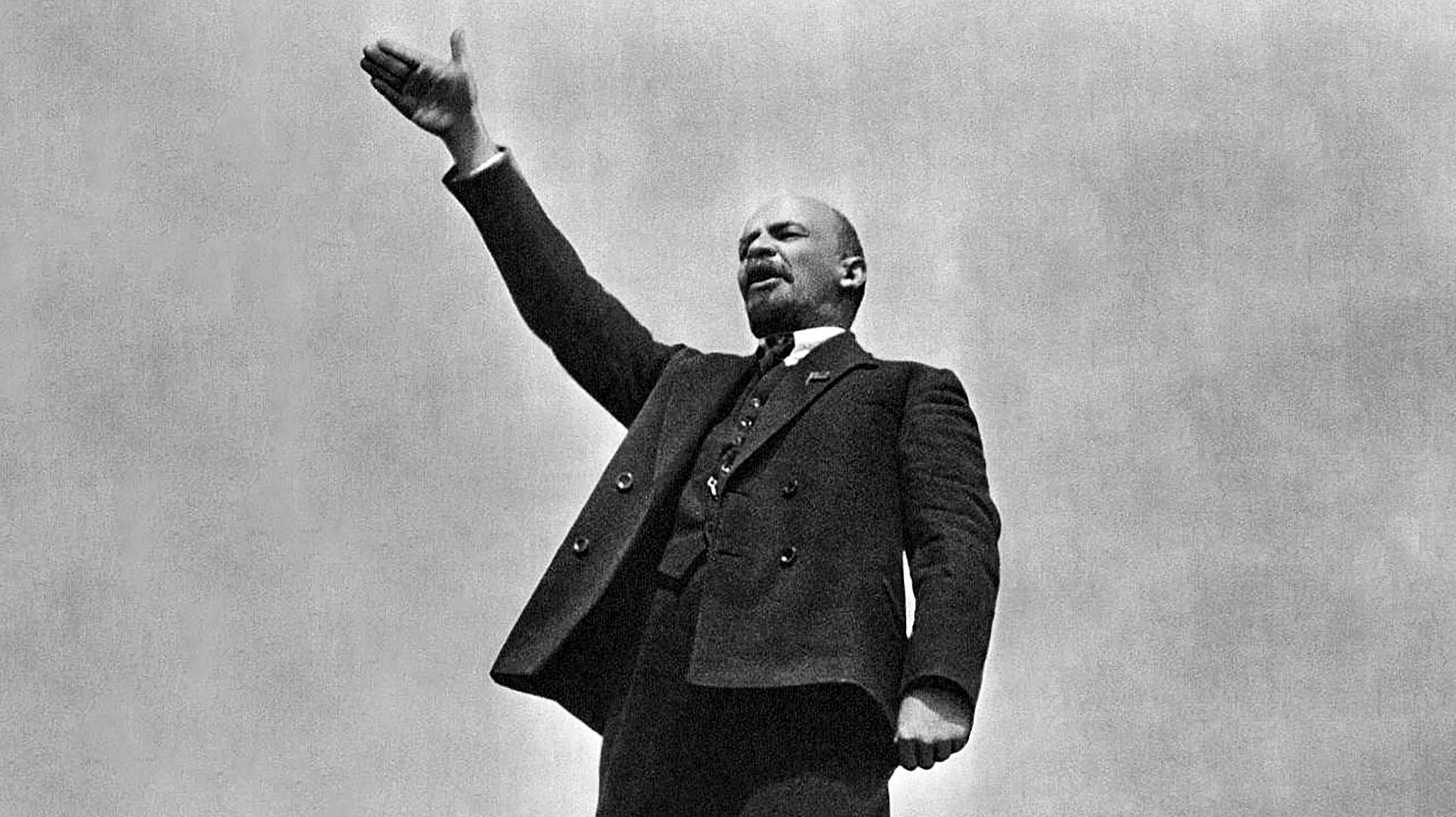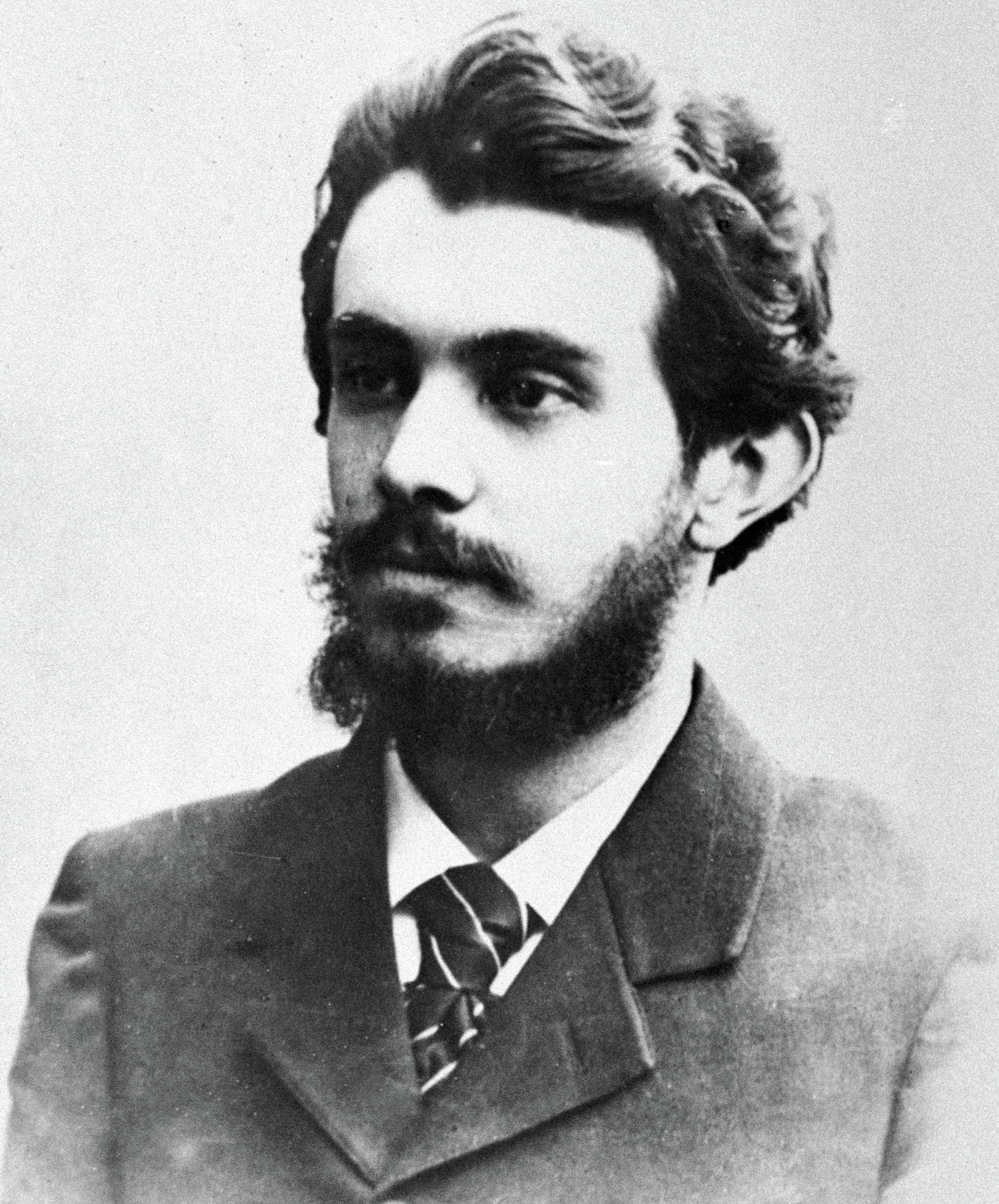
Steamer Oberburgermeister Haken
Rusarchives/Wikipedia“The expulsion of active counter-revolutionary elements and bourgeois intelligentsia is the first warning of the Soviet power for these strata,” was reported in the main Soviet newspaper “Pravda” (Truth) at the end of
Overall, more than 160 people - including family members - were forced to leave the country. These included professors, doctors, teachers, economists, writers, and political and religious figures. They all had one thing in common: They opposed the Soviet regime.
They were not allowed to take much with them: Two pairs of underwear, socks, shoes, a jacket, trousers, a coat, and a hat. That was it. Money and jewelry
Among those expelled were topnotch Russian social thinkers and scholars. The most famous of them was Pitirim Sorokin, one of the founders of contemporary sociology. During the time of the Russian

Vladimir Lenin delivering a speech at the Red Square in Moscow
Grigory Goldstein/WikipediaThere were also famous writers and non-Marxist philosophers. Sergei Bulgakov, Nikolai Berdyaev, Nikolai Lossky, Ivan Ilyin, and Semyon Frank to a great degree defined the way Russian philosophy developed before 1917. At the same
The reasons why the Soviet authorities expelled so many intellectuals were connected with the state educational outlook. In 1921, the Bolsheviks curbed universities’ autonomy, understanding the importance of education for the creation of a new, socialist society and wanting to tighten control over educational centers. In general, the new regime paid a lot of attention to education, actively fighting illiteracy and expending higher education. The university reform, however, caused discontent that triggered the wave of so-called “professors’ strikes.”
However, there were also other considerations involved. Many intellectuals were religious thinkers and as such had no place in socialist Russia, according to its leaders. This becomes obvious if one takes a look at Lenin’s article from
In his
However, there’s also another dimension to the problem. As social thinker Sergei Kara-Murza noted in his book “The Collapse of the USSR,” the Bolsheviks built a paternalistic ideocratic state based on the commonly shared idea of justice. Ideology played a pivotal role in this system. Thus, the Bolsheviks could not tolerate competitors regarding the conception of ideas.

Russian philosopher Nikolai Berdyaev
RIA NovostiOne of the passengers of the steamer, Nikolai Berdyaev, (a year after being evicted) wrote in his book “The Philosophy of Inequality”: “The socialist state is not a secular state, it is a sacral state…It resembles an authoritarian theocratic state. Socialism professes a messianic faith. The guardians of the messianic ‘idea’ of the proletariat are the specific hierarchy – the Communist Party, highly centralized and possessing dictatorial powers.”
At the same
Hence, Lenin tended to perceive them as enemies and “military spies.” His one-time main associate, Leon Trotsky, went even further, stating: “We expelled those people because there was no pretext to shoot them dead, and there was no possibility to tolerate them.”
If using any of Russia Beyond's content, partly or in full, always provide an active hyperlink to the original material.
Subscribe
to our newsletter!
Get the week's best stories straight to your inbox